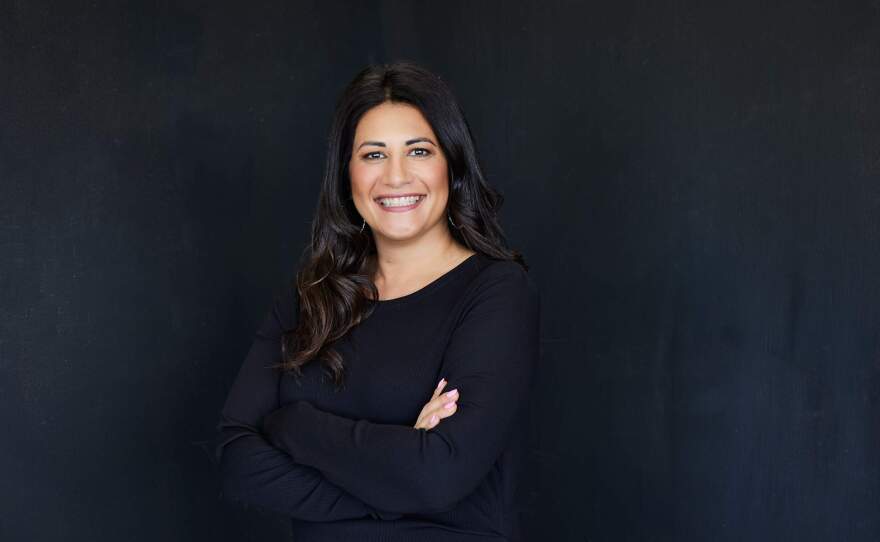It might seem obvious that the Palestinian people are different and distinct from Hamas, the Islamist militant group that runs Gaza. But Yasmine Mohammed argues that many people still conflate the two.
Mohammed is a Canadian author and activist who heads the charity Free Hearts Free Minds, which supports LGBTQ communities and unconventional thinkers in Muslim countries. Her father was a Palestinian, and her mother is Egyptian.
After her mother remarried, Mohammed grew up in a fundamentalist Islamic home in Vancouver, and at age 19, she was forced to marry a man who turned out to be an Al-Qaeda operative. She managed to escape that life. She has also left the Muslim faith.
Her views can be controversial, and ‘Yasmine Mohammed’ is a pen name she says she uses because of personal safety concerns.
Mohammed remembers her father, who grew up in Gaza, calling Hamas “the ugly face of the Palestinian struggle.”
She says he was upset that people could equate terrorism with Palestinian resistance.
“People don’t want the face of the resistance to be terrorists,” she says. “It’s like calling ISIS the face of Syrians or Iraqis. This is an unfortunate situation. Hamas have been getting so much funding from Iran and other Islamist countries … It’s easy for them to become the voice of the Palestinian people because all the other voices are being completely silenced.”
She says Hamas has cracked down on protest movements in Gaza like We Want to Live. There are other movements like the campaign Whispered in Gaza, which provides anonymous testimonies shared on social media.
“They’re talking about how unhappy they are under the Hamas leadership and how tyrannized they are,” she says.
Mohammed says Gaza is not the only place where the voices of the people have been silenced.
“We saw a very similar thing happening when the Iranian people were fighting against the Islamic regime. People assume, ‘Oh, it’s your leadership and you voted them in. So, therefore, you must agree with what they do,'” she says. “But we have to remember, Hamas was voted in 18 years ago. The Iranian regime was voted in 40 years ago, and these are not functioning democracies where people can just vote them out,” she says.
In her memoir, “Unveiled,” Mohammed argues that radical Islam is empowered by Western liberals. She says you can see that at some of the rallies that have taken place around the world since the attacks of Oct. 7 in Israel.
“It’s personified in the people chanting, ‘gas, the Jews’ in Sydney, Australia, or chanting ‘Khaibar, Khaibar,’ which is in reference to the slaughter of Jewish people by the prophet Mohammed. We want to support Muslim people 100%, and we want to support especially free-thinking Muslim people,” she adds, “but that does not mean that we should be out on the streets supporting Hamas.”
Mohammed says that the Palestinian people do not want their way out of this crisis to be through violence or killing innocent civilians.
“That is not how they want to be seen to the world,” she says.
Adeline Sire produced and edited this interview for broadcast with Todd Mundt. Grace Griffin adapted it for the web.
This article was originally published on WBUR.org.
Copyright 2023 NPR. To see more, visit https://www.npr.org. 9(MDM3NjYwMjA5MDE1MjA1MzQ1NDk1N2ZmZQ004))


